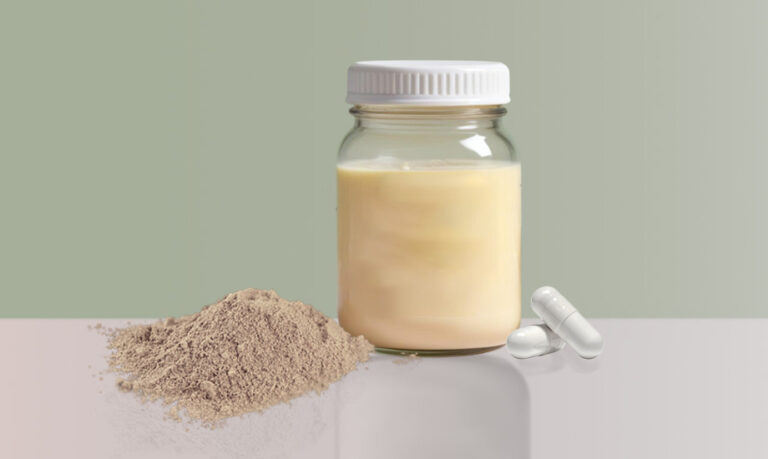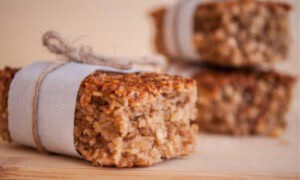Why is Colostrum Having a Moment?
Colostrum is gaining popularity, and for good reason. Known for its impressive immune-supporting properties, it’s being hailed as a powerhouse for gut healing and an effective remedy for busting bloat. Its high levels of immunoglobulins make it particularly attractive to those looking to bolster their immune systems naturally. The buzz on the internet about colostrum isn’t just hype; there’s substantial evidence supporting its benefits.
What is Colostrum?
Colostrum is the first milk produced by cows after giving birth. This nutrient-rich substance is specifically designed to benefit the newborn calf, providing a complex nutritional profile far superior to regular milk. Colostrum is packed with immunoglobulins, lactoferrin, growth factors, and bioactive peptides, all of which contribute to its potent health benefits.
What is Immunolin?
Immunolin, on the other hand, offers a highly concentrated source of immunoglobulins. Unlike colostrum, which is derived from milk, Immunolin comes from serum proteins, making it a purer and more potent option. It contains significantly higher levels of immunoglobulins and other bioactive peptides per dose, free from the contaminants often found in milk-based products. As a result, Immunolin is considered a superior alternative for those seeking immune and gut health support.
How Do Immunoglobulins Work?
Immunoglobulins play a crucial role in the body’s defense system. They bind to antigens, helping to remove harmful substances from the body. These proteins have proven effective in tackling a range of pathogens, including H. pylori, candida, certain types of mold, unwanted bacteria, and specific viruses. Additionally, immunoglobulins support the gut lining, aiding in the repair process and acting as a gentle binder during treatments for conditions like SIBO (Small Intestinal Bacterial Overgrowth).
Why is Immunolin a Superior Product Option?
Immunolin stands out as a superior product for several reasons:
- Lactose-Free: Derived from serum, Immunolin is free from milk or colostrum, making it suitable for those with lactose intolerance.
- Higher Concentration of Immunoglobulins: It boasts the highest protein content compared to colostrum, approximately 15% more, ensuring a more potent dose of immunoglobulins.
- Low Levels of Endotoxin Contamination: Colostrum can sometimes contain elevated levels of endotoxins, which can cause inflammation and increase gut permeability. Immunolin, however, has low levels of endotoxins, reducing this risk.
- Stability and Predictability: The quality of colostrum can vary based on factors like the cow’s health, breeding history, collection time, and storage conditions. Immunolin offers a more stable and predictable product, ensuring consistent benefits.
Safety of Immunolin
Immunolin is generally safe for a wide range of individuals, including those who are pregnant or breastfeeding, making it a versatile option for various stages of life. However, it is important to note that Immunolin is not safe for individuals with alpha-gal syndrome or a beef allergy, as it is derived from bovine sources. Always consult with a healthcare professional before beginning any new supplement, especially if you have specific allergies or sensitivities.
Research on Immunolin
Immunolin, a serum-derived bovine immunoglobulin/protein isolate (SBI), has been the subject of various studies highlighting its efficacy and safety. Research indicates that Immunolin’s high concentration of immunoglobulins offers significant benefits for gut health and immune support.
One notable study published in the Journal of Clinical Gastroenterology (1) examined the effects of SBI on patients with irritable bowel syndrome (IBS). The study found that daily supplementation with SBI significantly improved gastrointestinal symptoms, including bloating, abdominal pain, and stool consistency, compared to a placebo group. These improvements were linked to the ability of immunoglobulins to bind and neutralize gut toxins, reducing inflammation and enhancing mucosal healing .
In another study published in Nutrients (2), researchers explored the impact of SBI on individuals with human immunodeficiency virus (HIV)-associated enteropathy. The study demonstrated that SBI supplementation led to significant improvements in gut barrier function, as evidenced by decreased intestinal permeability and reduced inflammation markers. These findings suggest that Immunolin can be particularly beneficial in conditions characterized by compromised gut integrity .
Further research published in the World Journal of Gastroenterology (3) investigated the role of Immunolin in managing Clostridium difficile (C. diff) infections. The study highlighted that SBI supplementation reduced the severity of diarrhea and intestinal inflammation in patients with recurrent C. diff infections. The immunoglobulins in Immunolin were shown to neutralize C. diff toxins, thereby aiding in the resolution of the infection and preventing relapse .
How Immunolin Binds to Harmful Pathogens
Immunolin is particularly effective due to its high concentration of immunoglobulins, which play a crucial role in identifying and neutralizing harmful pathogens in the gut. Here’s a closer look at how Immunolin works against specific types of mold, Candida, H. pylori, SIBO bacteria, and other pathogens:
How Immunolin Binds to Harmful Pathogens
Immunolin, derived from bovine serum, is rich in immunoglobulins which are crucial for binding to and neutralizing harmful pathogens in the gut. This mechanism is particularly effective against a range of microorganisms that can disrupt gut health and overall wellbeing.
H. pylori and Small Intestinal Bacterial Overgrowth (SIBO)
Research has shown that immunoglobulins in Immunolin can bind to Helicobacter pylori (H. pylori), a bacterium associated with chronic gastritis, peptic ulcers, and an increased risk of gastric cancer. H. pylori can alter stomach acidity, creating an environment conducive to bacterial overgrowth in the small intestine, leading to SIBO. A meta-analysis demonstrated that H. pylori infection is significantly associated with a higher prevalence of SIBO, especially in younger individuals (4, 5)
Candida and Mold
Immunolin’s efficacy extends to fungal pathogens such as Candida albicans. Candida overgrowth can cause infections in the mouth, throat, and gut, leading to conditions like thrush and candidiasis. Additionally, toxic mold exposure can exacerbate gut dysbiosis by promoting Candida overgrowth and other pathogenic bacteria. Studies indicate that immunoglobulins can effectively bind and neutralize these fungal elements, thereby supporting the gut’s microbial balance and preventing overgrowth (6)
Other Pathogens
Immunoglobulins in Immunolin are also effective against various harmful bacteria and viruses. This includes their role in neutralizing antigens associated with unwanted bacteria in conditions like SIBO. The immunoglobulins help by binding to these bacterial antigens, preventing them from adhering to the gut lining and facilitating their removal from the body (4, 6)
Research Articles
For further reading, here are some key studies and sources:
- H. pylori and SIBO Relationship: BMC Microbiology (BioMed Central)
- Current and Future Perspectives for H. pylori Treatment: Frontiers in Microbiology (Frontiers)
- Immunolin Binding Capabilities: Nutritional Frontiers (Nutritional Frontiers)
Dosing Recommendations for Immunolin
When it comes to getting the most out of Immunolin, proper dosing is key. Depending on your health needs, the recommended amounts can vary:
- Maintenance: For general immune support and maintenance, taking 1-2 grams of Immunolin per day is sufficient. This dose helps maintain overall gut health and immune function.
- Gut Healing: If you’re focusing on gut healing, a higher dose is recommended. Taking 5 grams per day can provide the necessary support to repair and strengthen the gut lining.
- Acute Injury: In cases of acute conditions such as C. diff infections or IBD flares, a much higher dose may be necessary. For these situations, 10 grams or more per day can help manage inflammation and support the body’s healing processes.
By tailoring your Immunolin intake to your specific health needs, you can maximize its benefits and support your immune and gut health effectively.
Product Options for Immunolin
There are several products available that incorporate Immunolin, each with unique formulations to suit different health needs. Here are some of the top options:
- Orthospore: This product combines 1 gram of Immunolin with spore-based probiotics. Spore-based probiotics are beneficial because they are highly resilient and can survive the acidic environment of the stomach, ensuring they reach the intestines where they can colonize and provide maximum benefits. By combining Immunolin with these robust probiotics, Orthospore supports both immune health and a balanced gut microbiome.
- SBI Protect: Available in both capsule and powdered forms, SBI Protect provides a convenient way to incorporate Immunolin into your daily routine. This product can be easily dosed according to your specific needs, whether for maintenance, gut healing, or addressing acute conditions.
- Mega IgG2000: Similar to SBI Protect, Mega IgG2000 is offered in both capsule and powdered forms, making it flexible and easy to dose. This product focuses solely on delivering high levels of Immunolin for potent immune and gut health support.
- Mega Mucosa: This unique product combines Immunolin with citrus bioflavonoids and key amino acids, including L-proline, L-serine, L-cysteine, and L-threonine. These amino acids are crucial for the production and maintenance of intestinal mucosa, supporting mucin2 production and maintaining mucin synthesis in the colon. This results in a thick and healthy mucosal barrier. Unlike Mega IgG2000, which focuses solely on Immunolin, Mega Mucosa provides additional support for mucosal health, making it an excellent choice for those needing enhanced gut barrier function.
- IgGi Shield: This product includes Immunolin and N-acetyl-d-glucosamine (NAG). NAG is a naturally occurring amino sugar that plays a vital role in the maintenance of the gut lining and the production of mucin, the main component of mucus. By combining Immunolin with NAG, IgGi Shield offers enhanced support for gut integrity and immune function.
By choosing the right product, you can tailor your use of Immunolin to your specific health needs, whether you’re looking for general maintenance, targeted gut healing, or enhanced mucosal support. Each of these products provides unique benefits, making it easier to incorporate Immunolin into your wellness regimen effectively.
Conclusion
While colostrum certainly offers benefits for gut and immune support, it is often overly hyped on social media. Its complex nutritional profile and high levels of immunoglobulins do provide substantial health advantages. However, for those looking for a more potent and reliable option, Immunolin supplements stand out. With higher concentrations of immunoglobulins, superior stability, and fewer contaminants, Immunolin products offer a more effective solution for gut healing and immune support. Investing in Immunolin supplements ensures you receive the most powerful benefits, making it a smarter choice for your health and wellness journey.
How to order Immunolin
Immunolin supplements are conveniently available through Fullscript, a trusted wholesale supplement dispensary. You can set up an account and order your preferred Immunolin products via this link (you must setup an account first).
Medical Disclaimer
This blog post is for informational purposes only and does not constitute medical advice. Please consult with a healthcare professional before starting any new supplement regimen, especially if you have underlying health conditions or are taking other medications.
References:
- “Serum-derived bovine immunoglobulin/protein isolate improves symptoms of irritable bowel syndrome.” Journal of Clinical Gastroenterology.
- “Serum-derived bovine immunoglobulin/protein isolate for the management of HIV-associated enteropathy.” Nutrients.
- “Efficacy of serum-derived bovine immunoglobulin/protein isolate in recurrent Clostridium difficile infections.” World Journal of Gastroenterology.
- “Current and future perspectives for Helicobacter pylori treatment and management: From antibiotics to probiotics.” Frontiers in Cellular and Infection Microbiology
- “Helicobacter pylori infection and small intestinal bacterial overgrowth: a systematic review and meta-analysis.” BMC Microbiology
- “Advanced Immune Modulation Powder” Nutritional Frontiers.










1 thought on “Is Colostrum Worth the Hype for Gut Health?”
It’s amazing to see how these powerful options can support gut health and boost our immune systems. The benefits of immunoglobulins shine through, especially for those dealing with gut issues. Can’t wait to dive deeper into this topic! 🥛✨